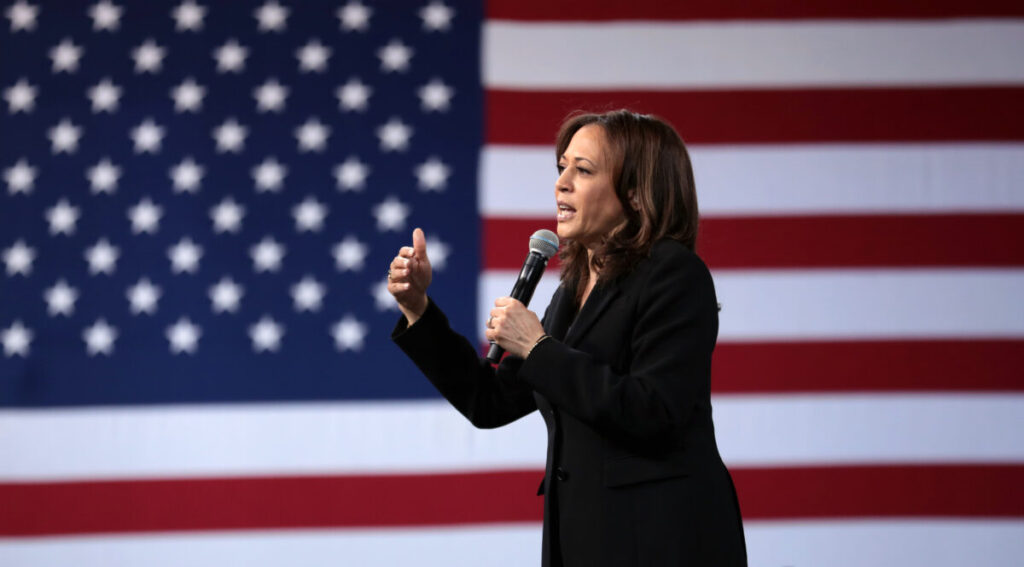
President Joe Biden and Vice President Kamala Harris are putting historically Black colleges and universities at the forefront of their national agenda.
The Biden-Harris administration announced this month its historic financial investment supporting HBCUs now totals more than $16 billion from 2021 to 2024. Over the last few years, the administration has used over $11.4 billion in funding to support efforts including the American Rescue Plan, which helped students recover from the pandemic. It also provided over $2.4 million into Project SERV, a grant that provides emergency funds to help HBCUs recover from violent and traumatic events, including several bomb threats that occurred in 2022.
Harris knows firsthand the impact of an HBCU education. The vice president graduated with an economics and political science degree in 1986 from Howard University — the same institution where she became an Alpha Kappa Alpha sorority sister — and then went on to pursue a law degree from the University of California. Harris’ educational journey eventually led to her breaking several barriers throughout her political career, including being the second Black woman and the first Asian American sworn in as senator of California in 2017. And most notoriously, Harris broke triple barriers in 2021 by becoming the first woman, the first Black person, and the first Asian American to serve as vice president of the U.S.
“As a proud graduate of Howard University, I know firsthand that our HBCUs are centers of academic excellence,” Harris said in an official statement. “For generations, these anchors of our communities have played a pivotal role in building and contributing to America’s leadership at home and abroad.”
The new announcement follows the administration’s $7 billion investment announcement last September, making it the largest funding dispensed from any administration in history. And it also came just days before Biden’s commencement speech at Morehouse College on Sunday, where he acknowledged the numerous issues Black communities face, including white supremacy and police brutality.
“Instead of a trail of broken promises, we’re investing more money than ever in Black families and Black communities,” Biden said during the speech. He also alluded to his historic investment into HBCUs, adding most HBCUs “don’t have endowments,” that help create laboratories and other important opportunities on campus.
Unlike predominantly white institutions, HBCUs face several challenges, primarily related to lack of funding. Last year, a report by the U.S. Department of Education revealed HBCUs lacked $12 billion in funding for federally-funded HBCUs between 1987 and 2020, resulting in many schools operating with inadequate resources and delayed investments in research developments and campus infrastructure. Another report by the American Council of Education found that between 2003 to 2015, both public and private HBCUs experienced the steepest decline in federal funding, with private schools experiencing a reduction by 42%.
Bomb threats have also been a problem. In 2022, more than a third of HBCUs across the country were targeted with threats, including 18 schools on the first day of Black history month, Politico reported. And six months after the threats, no arrests were made.
While Americans are just about evenly split on their partisan identification and presidential vote preference, recent data from the Pew Research Center finds that a majority of Black registered voters (77%) would vote for or lean toward Biden in the upcoming election. And additional data shows that 55% of Black Americans approve of how Biden is handling his presidency role. However, Black voters’ approval of Biden’s job performance has declined since 2021, with 87% of Black voters reported that they approved of Biden at the time.
In a world where Black communities face lags in homeownership, a maternal mortality crisis, gaps in insurance coverage and other systemic challenges, HBCUs are needed now more than ever, per Black Enterprise. Not only do HBCUs provide students with a cultural history, but they also help create opportunities for Black students — therefore ensuring a better future for Black people.
As Harris says in her statement: “We know that when we invest in the success of our HBCUs, we are investing in the strength of our Nation – today and for generations to come.”



